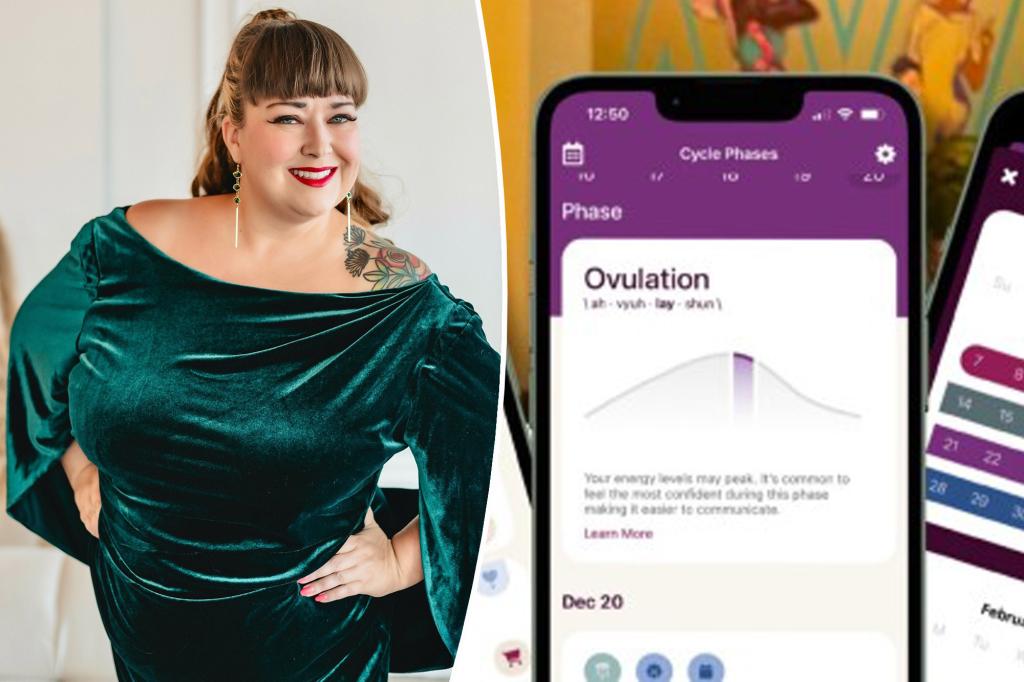The Change is causing big changes in marriages.
While a decreasing number of marriages are ending in divorce overall in recent decades, the rates continue to climb among adults aged 50 and older.
For some women, menopause can ultimately improve close relationships as they seek solace in friendships while collaborating with their male partners to better understand what their body is going through.
Others, however, believe that menopause gives them the clarity to leave their unsatisfying marriages.
When Melissa McClure went through perimenopause, the period of time leading up to menopause, she experienced hot flashes and lack of sleep — and her husband’s negative state of mind started to bother her.
She and her husband had been together for 14 years, but she started to feel unappreciated as a wife and stepmother. Perimenopause made her realize she wanted a divorce.
“We spend our entire adult lives taking care of our husbands or partners and children. We give so much of ourselves to other people as nurturers that we lose ourselves in the process,” the 44-year-old photographer told USA Today.
Her husband questioned whether it was a midlife crisis, and McClure explained, “It wasn’t a midlife crisis but an awakening.”
“I’m wide awake to the possibility of what my life can be, and it doesn’t include you,” she told him. She ended her marriage three years ago and said she has never been happier.
Many women in their midlife are experiencing similar feelings as their hormones start to change around the same time their life circumstances and stressors change — kids moving out, parents getting older, careers at a peak and so on.
Perimenopause and menopause can elicit a wide scope of symptoms, such as lack of sex drive and restless sleep, though many women admit they struggle with carrying the majority of the mental load.
Enter the “menodivorce.”
There are often many factors that ultimately lead to a divorce, but many women admit that perimenopause or menopause made them unable to tolerate things that they had previously brushed off.
“I hear it from patients every week,” Dr. Sameena Rahman, an OB-GYN and sex and menopause specialist in Chicago, told USA Today. “They might still love their husbands or partners, but they also hate them and no longer can put up with things they had been putting up with.”
According to a survey by the by the Family Law Menopause Project and Newsom Health Research and Education, seven in 10 women said perimenopause or menopause is to blame for the downfall of their marriage.
Divorce rates among adults 50 and older is getting higher. In 1990, nearly 1 in 10 divorces in the U.S. were among people of that age, and by 2019, that number grew to almost one in four, according to a study by Bowling Green State University’s National Center for Family and Marriage Research — occurring around the same time that most women go through menopause.
“Our hormones give us this protection to accommodate other people. When those start shifting, there is a lot of built-up resentment. Women have been busy taking care of everyone, and now they have to take care of themselves,” Mandi Dixon, a therapist for women in midlife in the Dallas area, told USA Today. “And this is a time when they may decide the relationship is just no longer worth it.”
Men will often blame divorce on irrationality as a result of menopause with a narrative of, “My wife is crazy,” but Alyx Coble-Frake, founder of The Agenda, said that’s not the case.
“Women are gaining clarity in perimenopause, and that clarity tells them to leave if things aren’t good.”
Dixon explained that getting help with menopause can sometimes force conversations with partners that allow them to be more supportive.
According to the UK survey from Family Law Menopause Project, most women said that if they had received support or treatment for menopause the fall through of their marriage may not have happed.
To get through the perimenopause and menopause stages, it’s important to get help and to talk to a medical provider about different options such as hormone therapy. It’s also vital to involve your partner and bring them along to appointments so they can better understand what’s going on.
McClure also advised talking to friends or a therapist about it.
Read the full article here

